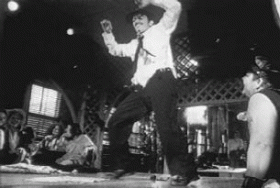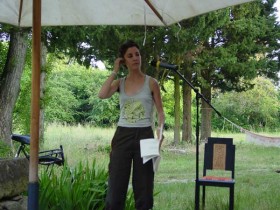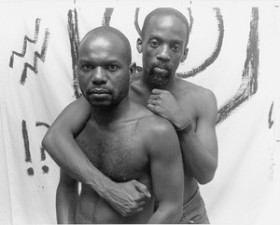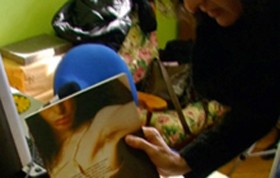The film begins in the Elizabethan era shortly before the death of Queen Elizabeth I. On her deathbed, Elizabeth promises an androgynous young nobleman named Orlando a large tract of land and a castle built on it along with a generous monetary gift which she will only bequeath to him if he consents to her command, “Do not fade. Do not wither. Do not grow old.” Both he and his heirs will keep the land and inheritance forever. Orlando acquiesces and resides in splendid isolation in the castle for a couple of centuries, during which time he dabbles in poetry and art. His attempts to befriend a celebrated poet, however, backfire when the poet ridicules his verse. Orlando then travels to Constantinople as British ambassador to the Turks, but he is almost killed in a diplomatic fracas there. Waking up the next morning, he learns something even more startling: he has physically transformed into a woman overnight.
The now Lady Orlando comes home to her estate in Middle Eastern garb, only to learn that she faces several impending lawsuits arguing that Orlando was a woman to begin with and therefore has no right to the land or any of her/his royal inheritance.
The succeeding two centuries tire her out; the court case, bad luck in love and the wars of British history eventually bring her up to the 1990s, with a young daughter in tow and a book in search of a publisher. The editor who judges the work as “quite good” is, ironically, portrayed by Heathcote Williams – the same actor who denigrated her poetry as a different character 200 years earlier. Having lived a most bizarre existence, Orlando finally finds a tranquil niche within it.
Potter argued that the more pragmatic medium of cinema called for reasons to drive the narrative, over the novel’s abstraction and arbitrariness, especially as the story itself is based on a kind of suspension of disbelief. Thus it is Queen Elizabeth who bestows the long life upon Orlando. The change of sex is a result of Orlando reaching a crisis of masculine identity when he is unwilling to conform to what is expected of him as a man. Nor as a woman can Orlando conform. Unlike the novel, the film ends with Orlando having a daughter, not a son.
Orlando’s words and looks to the camera [were] intended as an equivalent both of Virginia Woolf’s direct addresses to her readers and to try to convert Virginia Woolf’s literary wit into cinematic humor
The film’s last scene takes place in present-day 1992, just as Woolf’s novel ends in its present day of 1928.
Orlando is a 1992 film based on Virginia Woolf’s novel Orlando: A Biography, starring Tilda Swinton as Orlando, Billy Zane as Marmaduke Bonthrop Shelmerdine, and Quentin Crisp as Queen Elizabeth I. It was directed by Sally Potter. It was particularly acclaimed for its visual treatment of the settings of Woolf’s 1928 novel. Potter chose to film much of the Constantinople portion of the book in the isolated city of Khiva in Uzbekistan, and made use of the forest of carved columns in the city’s 18th century Djuma Mosque. The film premiered at the 49th Venice International Film Festival, in which it entered the main competition.
*Sally Potter is an English film director and screenwriter.




